TRANSFORMING THEFACEOF PHARMACY

I USC Mann School of Pharmacy and STRATEGIC PLAN 2023-2027
Pharmaceutical Sciences
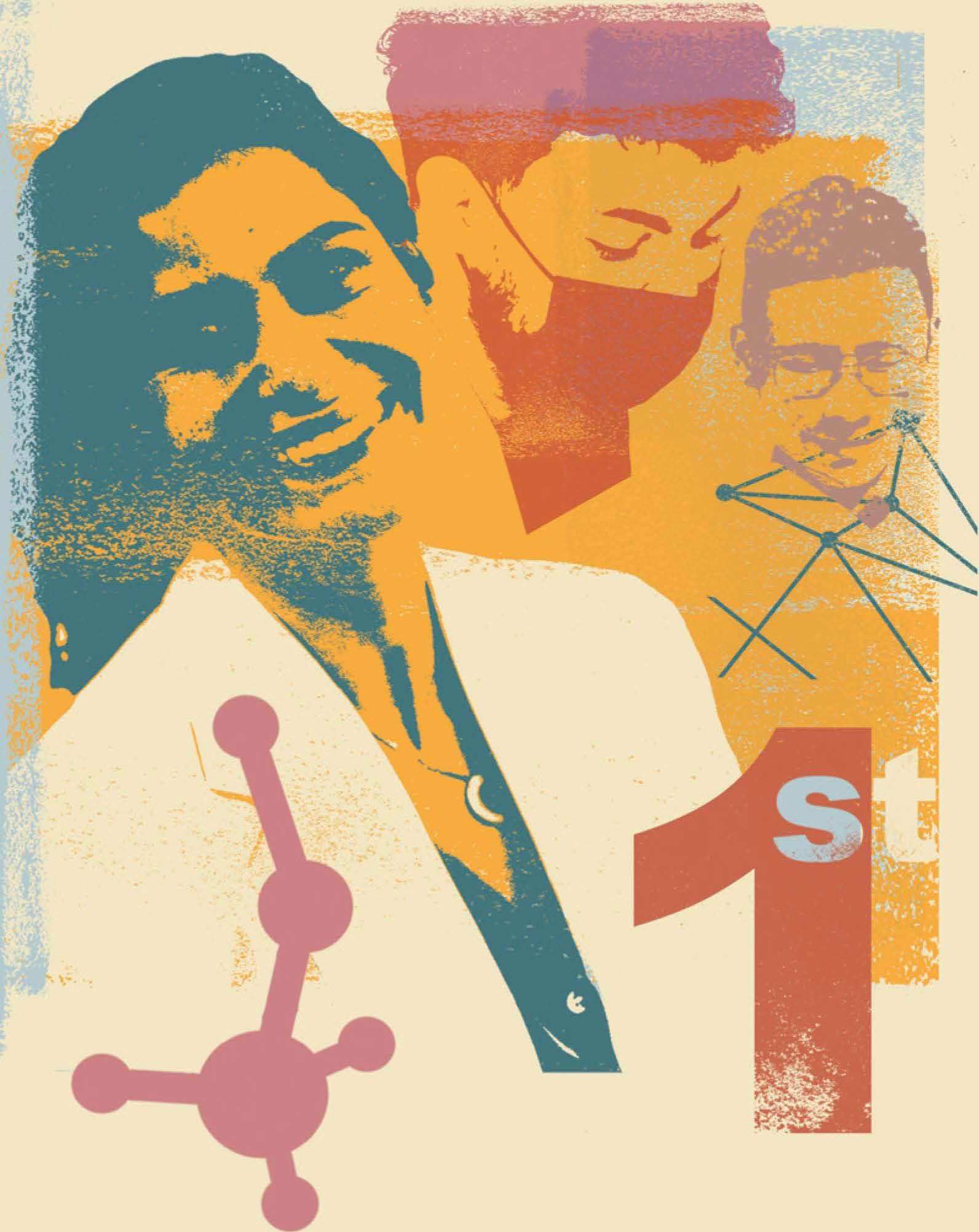


USCMann
1 2 3 4
The USC Mann School will transform the face of pharmacy by leading the convergence of science, healthcare and policy.
To advance health through excellence in pharmacy education, research and practice.
VISION MISSION 6
Message from the Dean
Overview
Goal 1: Student-Centered Education
Goal 3: Improve Lives Message from the Provost Message from the Senior Vice President for Health Affairs
Goal 4: Impactful Research
Goal 5: Collaboration and Convergent Science
Goal 6: Supportive and Sustainable Environment
Goal 2: Future Leaders Steering Committee
8 10 12 14 16
MESSAGE FROM THE DEAN Building on a Strong Foundation
Over the past five years, our school community implemented an ambitious and wide-ranging strategic plan that strengthened our capacity to fulfill the growing needs of our dynamic field and the school’s role in spanning the entire pharmaceutical spectrum—from discovery and development to clinical care,regulation, and policy and economics.To build upon this strong foundation, we have updated the strategic plan for 2023–2027 to further enhance the school’s ongoing efforts to transform the face of pharmacy
While many of the overarching goals and strategies remain consistent with our previous plan, the updated strategic plan leverages and expands on the advances and learnings of the past five years. These include novel, federally funded research initiatives, new collaborations and technological advances cultivated during the pandemic, significant growth of our undergraduate and other educational programs, and a major investment in our core research facilities.
Our people remain our greatest asset and the new strategic plan emphasizes a renewed and expanded commitment to wellness and to diversity, equity and inclusion.This includes a strong focus on developing and nurturing a broad and diverse pipeline of talented new leaders. It is only by empowering new generations that we can achieve a lasting impact.
Thank you for continuing on this journey with us.
Vassilios Papadopoulos, DPharm, PhD, DSc (hon)
Dean, USC Mann School of Pharmacy and Pharmaceutical Sciences
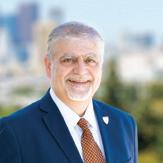 John Stauffer Dean’s Chair in Pharmaceutical Sciences Steering Committee Chair
John Stauffer Dean’s Chair in Pharmaceutical Sciences Steering Committee Chair
1 USC MANN SCHOOL STRATEGIC PLAN 2023-2027
MESSAGE FROM THE PROVOST MESSAGE FROM THE SENIOR VICE PRESIDENT
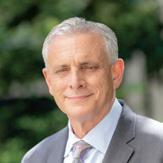
The USC Mann School has a strong legacy of education, research, service and partnership.The recent COVID-19 pandemic demonstrated that this work is more important than ever—and the school plays a critical leadership role as one of the strongest pharmacy programs in the nation. Over the past three years, USC pharmacists led COVID-19 vaccination delivery for the Los Angeles region, while the school’s health economists, laboratory scientists and regulatory experts analyzed how to effectively deploy scarce resources, pursued breakthrough therapies for COVID and other diseases, and explored ways to speed access to treatments while ensuring safety and efficacy Coming out of the pandemic, it is clear that the school must not only ensure the education of future generations of pharmacists, but also deliver scientific research and breakthroughs, and advance the health of people everywhere.
In its updated strategic plan, the school has charted a course consistent with its mission: transforming how diseases are understood, treated and cured—as well as increasing access to care, improving health policy, and promoting harmonized regulation of drugs and medical devices.This plan captures the forward-thinking ideas and aspirations of one of the world’s leading pharmacy programs.
Charles F. Zukoski, PhD Provost Senior Vice President for Academic Affairs Shelly and Ofer Nemirovsky Provost’s Chair
The USC Mann School has set a bold course to ensure its capacity to be a leading voice for pharmacy nationally and internationally I applaud the school’s efforts to expand interdisciplinary collaborations within USC to promote inter-professional education, team-based care and breakthrough discoveries. Building a diverse and well-trained pipeline of talent for all of the health-related professions is fundamental to the future of our nation and our world. Another important element of the revised strategic plan is its emphasis on health equity, wellness, and improvement of healthcare delivery and outcomes.Together we can harness the momentous advances in biological research to improve community health, treat and cure intractable diseases, prepare new generations of leaders, and create a more equitable and sustainable health landscape.
Steven D. Shapiro, MD Senior Vice President for Health Affairs
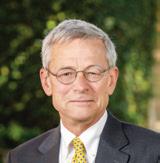
2
OVERVIEW
Ever since our founding in 1905, the USC School of Pharmacy now known as the USC Alfred E. Mann School of Pharmacy and Pharmaceutical Sciences—has advanced the field through pioneering initiatives, excellence in education and service to diverse populations in need. USC remains the only pharmacy school spanning the entire spectrum of pharmaceutical development and clinical practice—from medical discovery to regulatory approaches for safely moving drugs and devices to market more quickly, and from the delivery of care in a wide variety of settings to evaluation of the impact of care on patient outcomes and healthcare costs.
Through this comprehensive, revised strategic plan, we are continuing to build on the firm foundation of our past to raise the science and practice of pharmacy to even greater heights in the future. We will do this by converging disciplines, fostering collaboration, preparing a diverse pipeline of future leaders, and opening novel paths of scientific exploration and policy impact.
1 5 2 6 3 7 4 8
STUDENT-CENTERED EDUCATION
GOALS
Provide student-centered educational excellence and experiences, local and globally.
FUTURE LEADERS
Prepare leaders to transform pharmacy and healthcare.
IMPROVE LIVES
Improve the lives of those in our local, regional, national and global communities.
EQUITY & INCLUSION LEADERSHIP WELL-BEING CHARACTER
IMPACTFUL RESEARCH
Expand impactful research and scholarship.
COLLABORATION AND CONVERGENT SCIENCE
Build and sustain collaborations, partnerships and convergent science.
SUPPORTIVE AND SUSTAINABLE ENVIRONMENT
Cultivate a supportive and sustainable work and learning environment.
EXCELLENCE INNOVATION COLLABORATION DIVERSITY
3 USC MANN SCHOOL STRATEGIC PLAN 2023-2027
HEALTH
STUDENTCENTERED EDUCATION
Provide student-centered educational excellence and experiences, local and globally.
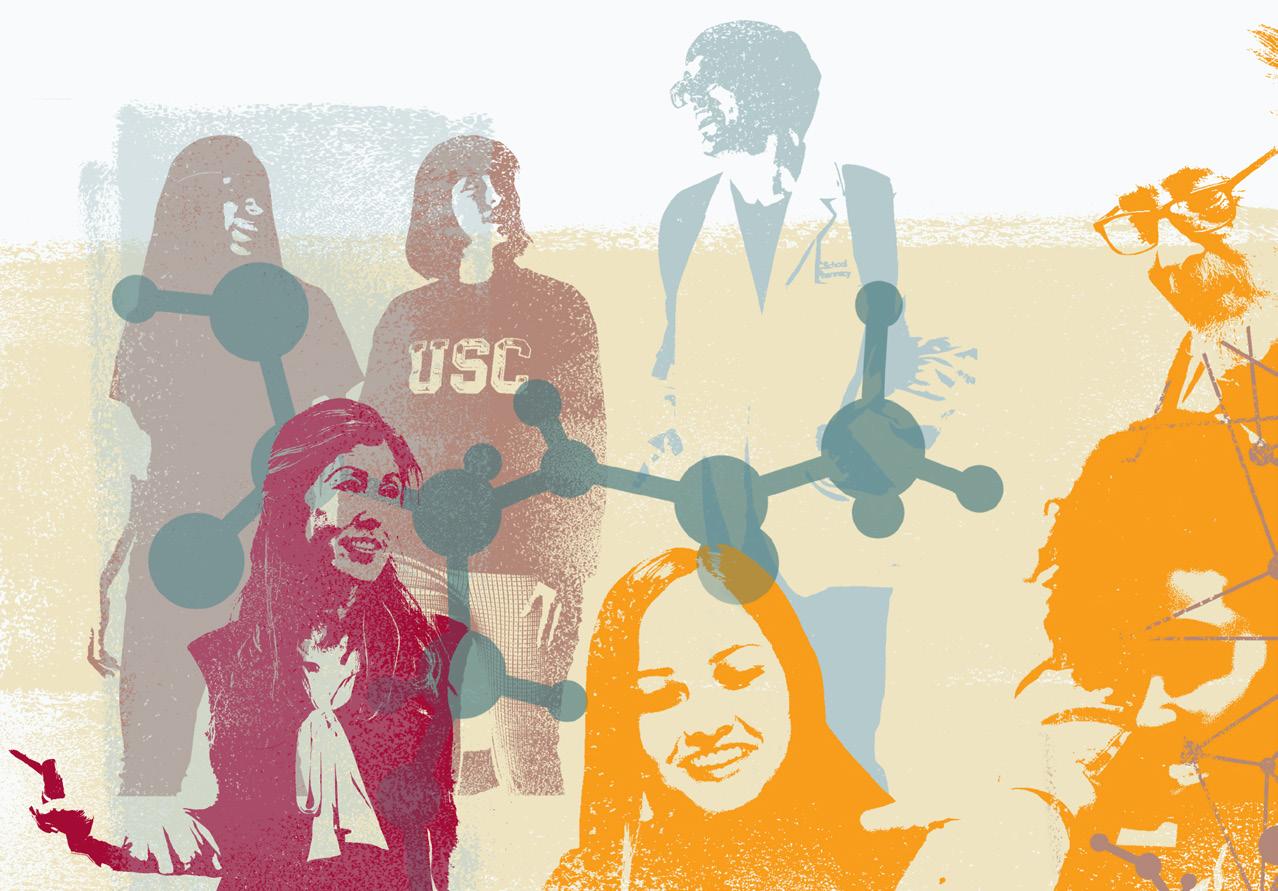
BOLDLY FIRST
FIRST four-year bachelor’s degree in pharmacy
FIRST PharmD program
FIRST clinical pharmacy program
FIRST clinical clerkships for pharmacy students
FIRST PharmD/MBA dual degree
FIRST PhD in pharmaceutical economics and policy
FIRST curriculum to integrate clinical and basic sciences
FIRST workshops to facilitate clinical education
FIRST MS in regulatory science
FIRST PharmD/JD dual degree
FIRST professional doctorate in regulatory science
FIRST master’s degree in healthcare decision analysis
FIRST undergraduate degree in biopharmaceutical business
GOAL 1
4
STRATEGIES AND TACTICS
Recruit an outstanding, academically talented and diverse student body.
» Expand national and global recruitment efforts.
» Increase the pool of outstanding professional degree candidates.
» Align student recruitment to meet evolving needs in pharmacy practice and pharmaceutical science.
» Consistently monitor evolving trends impacting the field of pharmacy to ensure educational programs remain relevant, forward-looking and appealing to prospective students.
» Evaluate the use of alternative assessment and admission criteria to ensure selection of the most talented students.
» Diversify the applicant pool.
» Develop consistent practices across the school for utilizing the customer relationship management system to manage and assess success in student recruitment and retention.
» Promote the school’s focus on student well-being.
Deliver a high-quality, student-centered curriculum.
» Continue a leadership role to drive adoption of new educational standards.
» Introduce new and innovative teaching modalities into the curriculum.
» Tailor educational tracks to support career development and evolving market needs.
» Evaluate and revise content to ensure the curriculum prepares students to succeed in their future careers.
» Enhance and more fully integrate interprofessional education.
» Expand sister-school partnerships to increase international dual degrees and service/experiential opportunities for students.
» Continue to develop and refine the quality assessment processes for the school’s curriculum and educational programs.
» Reevaluate existing outcome measures to ensure effectiveness of new teaching modalities and curriculum changes.
» Ensure students are exposed to a variety of care settings.
» Enhance the structure and content of graduate education to continue to produce scholars at the top of their fields.
Prioritize the professional growth and development of educators to foster an optimal environment for learning.
» Increase the size of the faculty to expand undergraduate and graduate programs and fully support PharmD programs.
» Create a school-wide professional development program that provides training, feedback and support to educators, trainees, mentors and advisors.
» Solidify integration and collaboration around educational programming within the school
» Expand and strengthen trainee and alumni participation in education.
» Engage working professionals in the field to bolster undergraduate and graduate educational experiences.
Secure contemporary facilities and a supportive infrastructure to advance the education mission.
» Continue to implement the school’s facilities master plan.
» Secure new space and renovate existing space to meet the needs of the school’s education programs, including modular/flexible space for active learning, technology-enabled lecture halls and testing facilities, simulation and practice-skills facilities, contemporary research labs and core support facilities, informal gathering areas and contemporary practice sites for experiential learning.
» Update the infrastructure to support virtual and hybrid teaching and learning using best practices that have evolved over the course of the COVID-19 pandemic.

» Provide relaxation and study facilities to foster student wellness and independent learning.
» Collaborate with other USC schools to secure facilities that support interprofessional education and practice.
» Develop a USC Mann School student center to provide all student-related services and connections to employment and mentoring opportunities.
5 USC MANN SCHOOL STRATEGIC PLAN 2023-2027
FUTURE LEADERS
Prepare leaders to transform pharmacy and healthcare.

#1 nation’s top-rated private pharmacy school in U.S. News & World Report rankings of the nation’s 140+ pharmacy schools
95.75
% passage rate in 2021 on the North American Pharmacist Licensure Examination, compared with national average of 83.7%
84% residency match rate in 2022, compared with national average of 77%
GOAL 2
6
STRATEGIES AND TACTICS
Redesign educational programs to incorporate the skills needed to produce the next generation of leaders.
» Continue to develop contemporary educational models and concepts to prepare students and graduates to work in a challenging healthcare environment.
» Identify the practical skills and abilities needed for students to lead, influence and guide other individuals, teams and organizations.
» Strengthen efforts to foster excellence in student leadership skills.
» Continue to encourage students to attend and participate in national/regional professional conferences.
» Encourage faculty to utilize resources provided by both the school and USC to advance the scholarship of teaching and learning.
» Develop educational policies and standards that promote guidelines for the practice, evaluation and prioritization of leadership work that matters most to student success.
Strengthen career planning and mentoring to assist students, trainees, staff and faculty in achieving their career ambitions and goals.
» Foster a culture of mentorship and career advising that enables students to be productive and successful.
» Expose students early in their education to different career opportunities.
» Expand career planning and placement support to guide students into new opportunities in the profession.
» Develop a USC Mann student center to provide all student-related services and connections to employment and mentoring opportunities.
» Continue to utilize alumni, faculty and the school’s connections with leaders in the field to provide students with greater exposure to experiential and career-building opportunities.
» Provide professional development, mentoring and career development opportunities to staff.
» Emphasize mentorship and development of junior faculty.
» Intentionally appoint and support underrepresented minorities in leadership positions.
» Advance continuing educational opportunities for all.
Provide high-value, lifelong educational programs to members of our community, industry leaders and the school’s alumni.
» Offer ed ucational programs that add significant value to members of our community, as identified through surveys, local/regional/national healthcare priorities, accreditation requirements and other tools.
» Expand distance-based platforms for continuing education.
» Provide continuing education for preceptors and practicing pharmacists that adds value, expands opportunities and increases job satisfaction.
» Expand the school’s executive education program for industry leaders.
» Provide certificate training and education aligned with advanced practice privileges and credentialing.
» Continue to offer symposia and short courses for nontraditional learners who have an interest in pharmacy.
Continue to position faculty, students and trainees as leaders, nationally and globally.
» Recognize faculty and student research and scholarly activities.
» Further our leadership role in development of new pedagogy and curricula, including production of education materials, scholarly projects on education best practices, and defining and refining educational standards.
» Identify national and global leadership opportunities for graduate students.

» Increase the diversity of pharmacy leaders to reflect the demographics of the nation.
» Continue to position faculty as expert sources in local and national media.
7 USC MANN SCHOOL STRATEGIC PLAN 2023-2027
IMPROVE LIVES
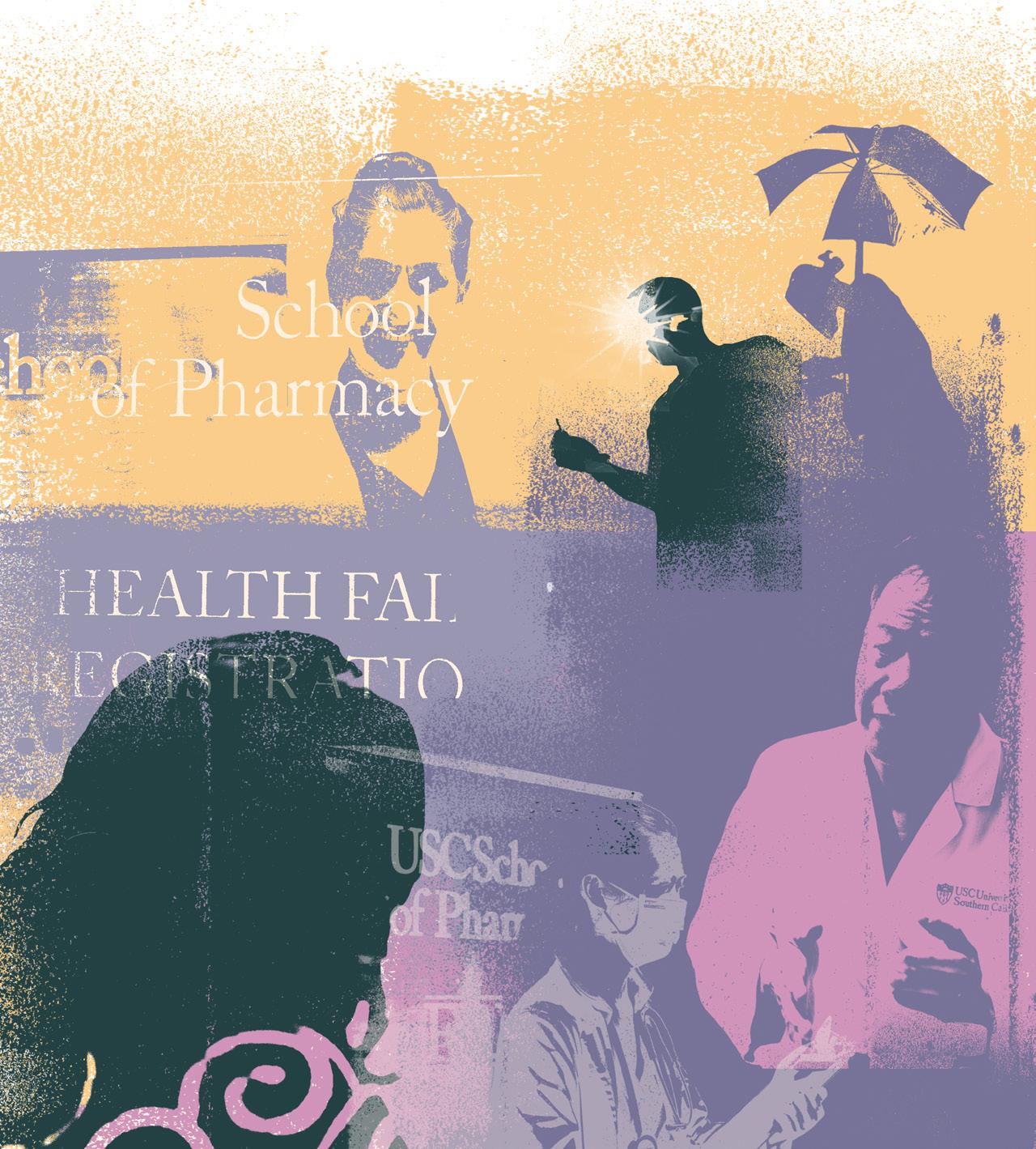
GOAL 3
Improve the lives of those in our local, regional, national and global communities.
8
STRATEGIES AND TACTICS
Collaborate with the local community to advance health.
» Cultivate a trusted, transparent relationship with the surrounding community.
» Expand community outreach and education.
Strengthen the school’s capacity to increase community engagement and improve the health of the community.
» Continue to communicate faculty community expertise and ongoing community-engagement activities across the school.
» Increase the number of faculty, staff and students participating in community-service activities.
» Teach students and deploy best practices in community engagement.
» Strengthen collaborations and partnerships with other USC professional schools as well as state and local public health agencies.
» Further engage alumni in community programs.
» Publicize successful programs that have improved the lives of those in the community.
Expand high-impact, innovative programs aligned with local, regional and national healthcare priorities.
» Continue to identify and target critical problems in the community (such as opioids, geriatrics, mental health, pediatrics, homelessness and public health issues).
» Align programs with the university’s strategic initiatives.
» Build upon successful strategies learned from the COVID-19 pandemic.
» Disseminate best practices to all stakeholders.
» Develop programs that are economically sustainable and aligned with partnering health systems and payors.
» Prepare students to be globally minded healthcare professionals.
5 pharmacies owned and operated by the USC Mann School
4 Pinnacle Awards from the American Pharmacists Association—a national record
1,740 hours of experiential learning per PharmD student
300 field sites 400 400 volunteer faculty and preceptors
25+ health fairs each year
Continue to play a leadership role in shaping health policy.
» Educate students about health policy.
» Promote the school’s health policy research activities and strengths.
» Support involvement in addressing health policy issues.
9 USC MANN SCHOOL STRATEGIC PLAN 2023-2027
IMPACTFUL RESEARCH
Expand impactful research and scholarship.
USC MANN RESEARCH CENTERS
USC Institute for Addiction Science
Center for Drug Discovery and Development
USC Ginsburg Institute for Biomedical Therapeutics

D. K. Kim International Center for Regulatory Science
USC Center for Neuronal Longevity
Center for Quantitative Drug and Disease Modeling
Leonard D. Schaeffer Center for Health Policy & Economics
Southern California Clinical and Translational Science Institute
Titus Center for Medication Safety and Population Health
GOAL 4
10
STRATEGIES AND TACTICS
Develop a supportive infrastructure to foster a research-intensive environment.
» Identify current and future research space needs.
» Invest in state-of-the-art, accessible research cores and technology.
» Strengthen infrastructure to support intellectual property and tech transfer.
» Incorporate research space and infrastructure needs into school-wide facilities master plan.
» Identify infrastructure needs to support targeted program areas.
» Systematically assess and address research personnel needs to support high-impact research.
Recruit and retain outstanding faculty.
Recruitment Tactics
» Define a transparent and collaborative mechanism to determine strategic faculty recruitment for the school.
» Increase faculty diversity.
» Offer competitive recruitment packages as well as quality space to attract outstanding researchers to USC.
» Identify and cultivate students and trainees as prospective new faculty members and utilize the graduate student and postdoctoral programs to build the pipeline.
» Optimize joint faculty appointments with other USC schools to enhance recruitment and retention initiatives.
Retention Tactics
» Enhance incentives and support for research, including protected resources and time for research and scholarship, teaching and research assistants, and seed grants and bridge funding.
» Establish a culture that publicly celebrates faculty honors, awards and outstanding peer-reviewed publications.
» Publicize the process used to evaluate faculty and award merit increases.
» A ssign senior faculty as mentors to support junior faculty in launching successful careers.
Grow the research portfolio and ensure it remains of the highest quality.
» Identify and invest in targeted areas of research excellence.
» Align research with national healthcare priorities, National Institutes of Health and other funding agency priorities, and the school's educational thematic focuses.
» Establish a mechanism for proactively identifying, targeting and matching faculty with upcoming funding opportunities.
» Diversify funding mechanisms and sources.
» Expand philanthropic support for research.
Actively promote the school’s research and scholarship advances and innovations.
» Develop a multiplatform strategy to promote School of Pharmacy research accomplishments.
» Increase school sponsorship and participation in national events to strengthen networking and visibility.
» Recognize faculty excellence and achievements regionally, nationally and internationally.
» Promote scholarship by increasing research exposure for all students and trainees.
» Increase the number of resident research projects presented at state or national conferences and/or published in peer-reviewed journals.
$8 billion university’s annual economic impact on California
$700 million university’s annual sponsored awards for biotech and other health-related research
11 USC MANN SCHOOL STRATEGIC PLAN 2023-2027
COLLABORATION AND CONVERGENT SCIENCE
Build and sustain collaborations, partnerships and convergent science.
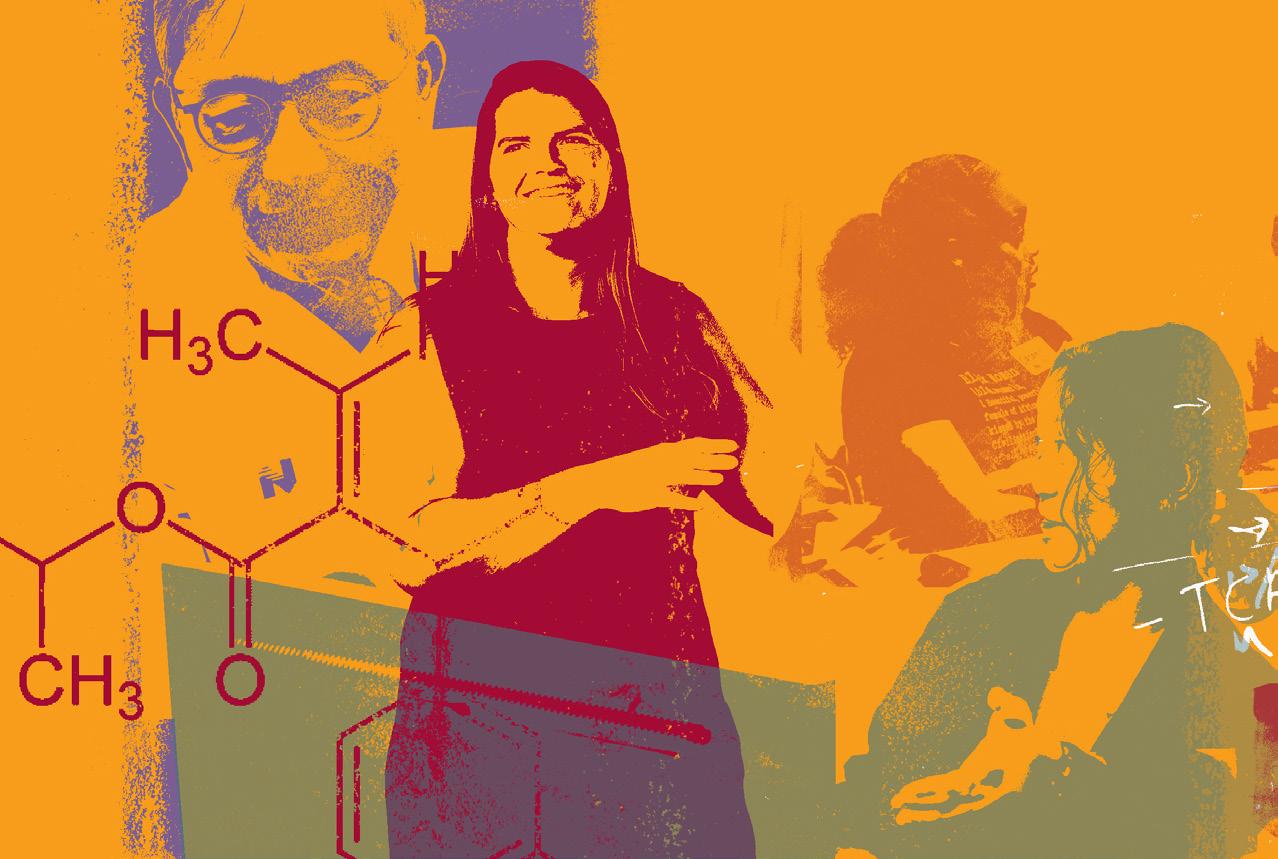
31 Asia
1 Australia
6 Europe
4 Middle East
8 South America
GOAL 5
INTERNATIONAL
12
PARTNERSHIPS
STRATEGIES AND TACTICS
Expand interdepartmental collaboration and differentiated opportunities.
» Educate faculty and students across disciplines to understand and appreciate others’ areas of expertise, skills and accomplishments.
» Continue to foster greater collaborative interdisciplinary research within the school

» Align with USC’s investment in interdisciplinary centers by increasing school faculty involvement.
» Communicate and promote faculty interests and research strengths to build potential collaborations across the school.
» Redesign space to stimulate collaboration.
» Solidify integration and collaboration around educational programming within the school
Increase convergence with other USC schools, Keck Medicine and affiliated clinical partners.
» Communicate and promote faculty interests and research strengths to expand collaborations across USC.
» Establish opportunities for learning in an integrated, multiprofessional environment that mimics realworld practices.
» Strengthen the school’s alignment with the Keck School of Medicine and Keck Medical Center.
» Continue to nurture partnerships with clinical practice sites to ensure ongoing allegiance to USC.
» Strengthen collaboration with other USC schools, playing a key role in USC’s convergent science initiatives.
» Develop collaborations and internships with industry.
Continue to develop and sustain highly valued, mutually beneficial connections between the school and alumni and other collaborators.
Training and Mentorship Tactics
» Invite alumni and friends of the school to serve as external mentors to students, matching up student interests with mentor expertise when possible.
» Seek alumni engagement in mandatory student projects to supervise students working on resolving real problems, challenges or opportunities.
» Solicit alumni input on educational programs and curriculum planning; invite select alumni to participate in training students in the areas of concentration aligned with their expertise.
» Prepare students to provide value-added services during experiential training rotations; involve alumni in experiential training rotations.
» Leverage alumni practice sites for internships, clinical research, and student scholarly projects and residency training programs.
Alumni-Engagement Tactics
» Offer high value for alumni membership.
» Provide and publicize high-value lifetime educational programs to members of the pharmacy community, industry leaders and the school’s alumni.
» Develop an alumni directory.
» Help facilitate alumni career advancement.
» Assist alumni seeking to provide internships to USC Mann students and interested in filling open positions with graduates.
Strengthen collaboration and partnerships with county and state stakeholders.
» Provide leadership in county and state healthcare agencies that support or expand the role of pharmacy.
» Where feasible, align resources that concurrently support the goals of the school and county and state health agencies.
» Seek funding opportunities to expand pharmacy expertise and innovation in partnership with county and state health agencies.
» Cultivate government, industry and community relationships to identify future teaching and career placement opportunities for students.
» Access a diverse patient base for research, practice advancement/innovation and education.
» Continue to identify collaborations and programs to advance health and wellness with county health agencies and other healthcare payors.
Continue to create and nurture partnerships that advance knowledge, practice and policy, both nationally and globally.
» Actively pursue new strategic collaborations and partnerships with academia, industry, and government and community agencies.
» Determine measures to evaluate the value and sustainability of prospective collaborations and partnerships.
» Regularly evaluate potential collaborators to ensure a global mix of partners.
» Leverage industry and business partnerships to expand expertise, perspective and resources.
» Leverage scholarship, partnerships and USC’s reputation to drive policy change around pharmacy practice and the healthcare ecosystem.
13 USC MANN SCHOOL STRATEGIC PLAN 2023-2027
SUPPORTIVE AND SUSTAINABLE ENVIRONMENT

Cultivate a supportive and sustainable work and learning environment. GOAL 6
14
STRATEGIES AND TACTICS
Design infrastructure that facilitates collaboration, innovation and a sense of community.
» Continue to implement the school’s facilities master plan.
» Secure/share contemporary facilities and infrastructure to advance the education mission.
» Develop infrastructure to create a research-intensive environment.
» Evaluate expanding the school’s footprint beyond the Health Sciences Campus to facilitate interdisciplinary collaboration and increase awareness of pharmacy programs.
» Further advance policies and procedures that enhance work-from-home and hybrid participation.
» Continue to provide space for relaxation, socializing, health and wellness.
» Launch fundraising campaign to develop new facilities.
Further an organizational culture that fosters teamwork and values the well-being and contributions of every member and stakeholder of the school.
» Commit to unwavering dedication to the school’s core values.
» Foster an esprit de corps for the school.
» Ensure supportive infrastructure and processes are in place for all to thrive at the school.
» Promote and support the well-being of all members of the school.
» Enhance student orientation and support.
» Recognize staff contributions.
FACILITIES
JOHN STAUFFER PHARMACEUTICAL SCIENCES CENTER
Be a global model of excellence for advancing diversity, equity and inclusion in science, education, healthcare and policy.
» Build and sustain a diverse organization.
» Seek and strengthen equitable and enduring partnerships in research, teaching and service.
» Practice and promote inclusive teaching and learning.
» Cultivate equity-informed research that improves lives.
» Prepare scientists and practitioners to be lifelong learners, advocates, activists, and models for equity and justice in health.
» Foster a culture in which everyone experiences and contributes to a sense of belonging.
Ensure a sustainable financial future for the school.
» Develop a business approach for each of the following revenue streams: diversified research funding sources, professional and masters’ programs, pharmacy practices, online education programs, technology, and undergraduate majors and minors.
» Pursue other income-generating business development activities.
» Increase philanthropy.
CORE RESEARCH LABORATORIES
Histology Laboratory
Lentiviral Laboratory
Mass Spectrometry Core
Medicinal Chemistry Core
Translational Research Laboratory
PHARMACIES
USC Pharmacy (University Park Campus)
USC Medical Plaza Pharmacy (Health Sciences Campus)
USC Health Center Pharmacy (University Park Campus)
Verdugo Hills Professional Pharmacy
Keck Medicine of USC Specialty Pharmacy
USC South Los Angeles Pharmacy (opening in 2024)
USC NORRIS MEDICAL LIBRARY
15 USC MANN SCHOOL STRATEGIC PLAN 2023-2027
STRATEGIC PLAN STEERING COMMITTEE STRATEGIC PLAN PARTICIPANTS
Vassilios Papadopoulos, DPharm, PhD, DSc (hon)
Dean, USC Mann School
John Stauffer Dean’s Chair in Pharmaceutical Sciences Steering Committee Chair
Paul Beringer, PharmD
Former Chair,Titus Family Department of Clinical Pharmacy
Steven Chen, PharmD Associate Dean, Clinical Affairs
William A. and Josephine A. Heeres Chair in Community Pharmacy
Kari Franson, PharmD, PhD
Associate Dean, Academic and Student Affairs
Geoffrey Joyce, PhD
Chair, Department of Pharmaceutical and Health Economics
Eunjoo Pacifici, PharmD, PhD Chair, Department of Regulatory and Quality Sciences
Clay C.C. Wang, PhD
Chair, Pharmacology and Pharmaceutical Sciences
Maryann Wu, EdD Assistant Dean, Assessment
Houda Alachkar, PharmD, PhD Associate Professor, Clinical Pharmacy
Vanessa Ault, EdD Associate Director, Career and Academic Counseling
Carla Blieden, PharmD Assistant Professor, Clinical Pharmacy
Susan Bonilla, MEd CEO, California Pharmacists Association
Allison Frierson Bryant Associate Director, Recruitment and Outreach
Enrique Cadenas, PhD Professor, Pharmacology and Pharmaceutical Sciences
Charles Krown/Alumni Professor of Pharmaceutical Sciences
Yijun Cai PharmD Student
Michelle Chu, PharmD
Assistant Professor, Clinical Pharmacy
Terry David Church, DRSc Assistant Professor, Regulatory and Quality Sciences
David Dadiomov, PharmD Assistant Professor, Clinical Pharmacy
Richard Dang, PharmD Assistant Professor, Clinical Pharmacy
Julia Darnell, PharmD Fellow, Academic Pharmacy
Daryl Davies, PhD
Associate Dean, Undergraduate Education
Timothy M. Chan Professor of Complementary Therapeutics
Murad Dibbini, MBA Director, Enrollment Management
Jeremy Dow, PharmD
PGY-1 Community-Based Pharmacy Resident
Melissa Durham, PharmD
Assistant Dean, Diversity, Equity and Inclusion
Owen Dy Facilities Manager
16
Whitney Fakolade, PharmD
PGY-1 Community-Based Pharmacy Resident
Lisa Goldstone, PharmD Director, Residency Programs
Bill Gong, PharmD
Associate Professor, Clinical Pharmacy Director, Fellowship Program
Terrence Graham, EdD Associate Dean, Graduate Education and Postdoctoral Studies
Chief International Officer
Ian Haworth, PhD
Associate Professor, Pharmacology and Pharmaceutical Sciences
Cheryl Hergert Doctor of Regulatory Science ’22
Jennifer Hsu
Program Administrator, PharmD Curriculum
Michele Keller Chief Communications Officer
Rory Kim, PharmD
Assistant Professor, Clinical Pharmacy Co-Director, International Summer Program
Andrella King, PhD Fellow, Pharmaceutical Sciences
Stan Louie, PharmD Professor, Clinical Pharmacy
Brian Ma, PharmD Clinical Staff Pharmacist
Candice Ma PharmD Student
Edith Mirzaian, PharmD Assistant Dean, Curriculum
Elaine Miyamoto Human Resources Manager
Scott Mosley, PharmD Assistant Professor, Clinical Pharmacy
Austin Mullins, PharmD Fellow, Global Medical Affairs
Curtis Okamoto, PhD
Associate Professor, Pharmacology and Pharmaceutical Sciences
Noemi Ortega
Assistant Director, Annual Giving and Alumni Relations
Tam Phan, PharmD Assistant Professor, Clinical Pharmacy
Nancy Pire-Smerkanich, DRSc Assistant Professor, Regulatory and Quality Sciences
Cory Reano, EdD Director, Student Success and Engagement
Seth Seabury, PhD Director, Graduate Studies, Pharmaceutical Economics and Policy
Rita Shane, PharmD Vice President and Chief Pharmacy Officer, Cedars-Sinai Health System
Cheryl Stanovich Chief Development Officer
Irving Steinberg, PharmD Associate Dean, Faculty Affairs
Raffi Svadjian, PharmD Executive Director, USC Pharmacies
Patrick Tabon, PharmD Assistant Professor, Clinical Pharmacy
Daniel Tomaszewski, PhD Associate Professor, Pharmaceutical and Health Economics
Wade Thompson-Harper Associate Director, Graduate and Postdoctoral Education
Erin Trish, PhD Co-Director, USC Leonard D. Schaeffer Center for Health Policy & Economics
Ying Wang, PharmD Director, Professional Experience Programs
Ken S. Wong, PharmD Director, Healthcare Decision Analysis and Biopharmaceutical Marketing Programs
Annie Wong-Beringer, PharmD Associate Dean, Research
Janet Wu
Master of Science in Regulatory Science Candidate
Jennica Zaro, PhD Assistant Dean, Assessment of Graduate Education
Yong (Tiger) Zhang, PhD Associate Professor, Pharmacology and Pharmaceutical Sciences
DESIGN: WARREN GROUP | STUDIO DELUXE ILLUSTRATIONS: CLARE NICHOLAS





 John Stauffer Dean’s Chair in Pharmaceutical Sciences Steering Committee Chair
John Stauffer Dean’s Chair in Pharmaceutical Sciences Steering Committee Chair











